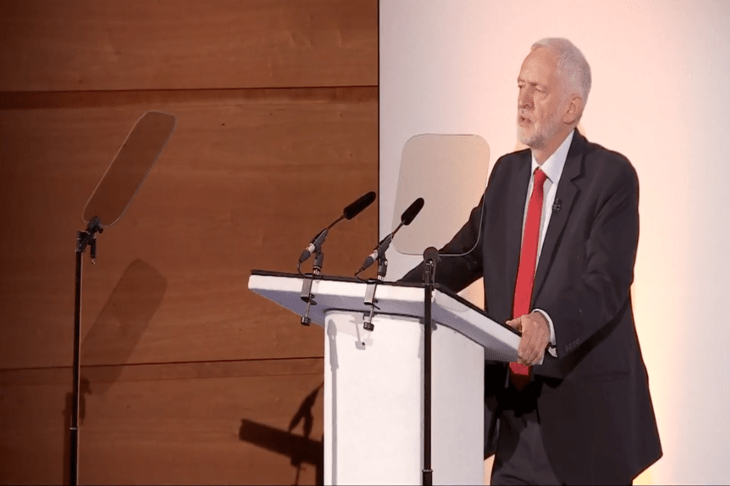It should be said that Jeremy Corbyn’s ideas for shaking up the media aren’t all bad. The Labour leader is right for instance to focus on the need to help out local media; the death of regional newspapers in recent years means that local government is almost entirely unaccountable nowadays. It’s only when things go badly wrong that people actually sit up and pay attention. Corbyn is also right on the need to reform freedom of information laws, which have now been rendered virtually redundant by those in authority who know exactly how to prevaricate and obstruct requests at every turn. But too many of the Labour leader’s other ideas are half-baked and reveal a simple truth: Jeremy Corbyn simply doesn’t understand the media.
Take Corbyn’s apparent concern in the ‘low levels of public trust’ in journalists. Yes, it’s right that those in the media should be worried about this and do their best to improve their standing in the eyes of the public. But why is Corbyn singling out journalists by this measure? After all, what is the least trusted profession in Britain? Its politicians, according to this Ipsos MORI poll last year. So what is Corbyn’s plan to improve his – and his colleagues’ – standing in the eyes of the public? Estate agents, too, are universally hated. Does Corbyn think it’s worth making a speech about them?
It also seems worth pointing out that while it’s true that many people don’t trust journalists, millions of people still buy newspapers, magazines, watch news broadcasts and pay for subscriptions for media outlets every day. Corbyn says that ‘most of our citizens think our newspapers churn out fake news day in, day out’. Even if they do, they have a simple choice: don’t buy the product.
Corbyn also expressed his view that in order to ‘empower journalists’ it was necessary to ‘reduce the power of media bosses’. Yet a simpler solution for allowing journalists to get on with their job might be staring Corbyn in the face: perhaps he should just answer questions straightforwardly in future:
Finally, Corbyn’s surprise at how vox pops are used is also unintentionally revealing. Here’s what the Labour leader had to say on the subject:
‘A vox pop looks unfiltered but what makes it onto TV or radio is chosen by the editors on the day.’
Corbyn clearly detects something sinister here. But the simpler truth is that while media outlets do have their own angle, editorialising is also designed with the viewer or reader in mind: choosing which vox pops to use probably has more to do with ensuring the audience don’t get bored rather than pushing a particular line. Yes, a journalist might conduct ten vox pops and use only one or two, but the editor’s choice is governed not only by what the person might say but how they say it, and who they are. Surely Corbyn can’t expect the BBC to run with every vox pop it conducts, or a newspaper to include the views of everyone spoken to, even if those opinions also happen to be mightily dull and badly conveyed? If so, Corbyn – whose own time working as a journalist was somewhat short-lived – can guarantee one thing: the media will be a lot duller and boring for it. But then again perhaps that is exactly what the Labour leader would like.







Comments